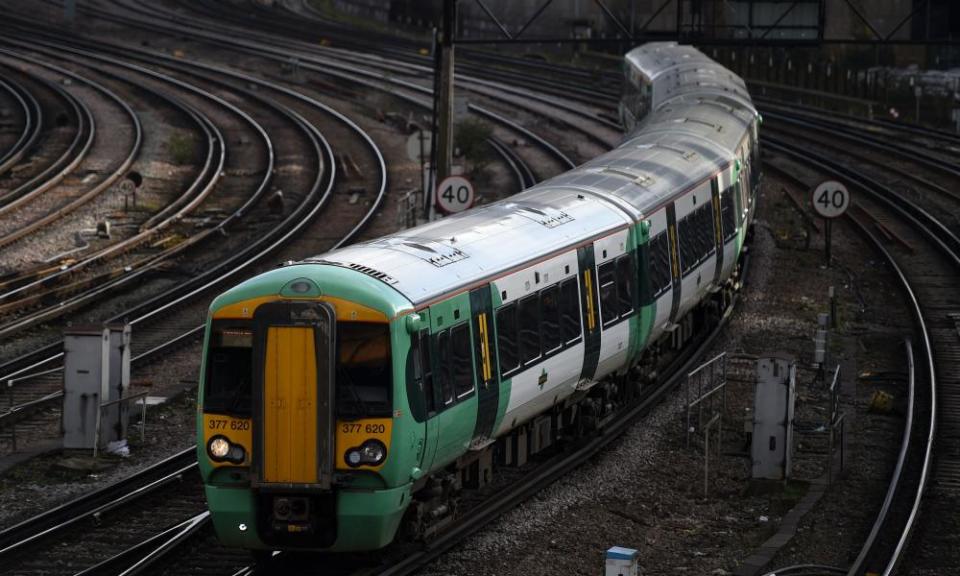Rail worker killed by train in south London was on zero-hours contract

A railway worker killed by a train in south London was on the track alone because he was covering up for his brother, who was too tired to do the night shift after daytime delivery work, it has emerged.
The Labour party and unions joined safety inspectors in calling for an overhaul of zero-hours contracts on the railway after investigators found fatigue was a likely contributory factor in the fatal accident last November. Labour said it was a “tragic reminder of the human cost of zero-hours contracts”.
The worker who died, a controller of site safety, was telephoned by his brother a few hours before the start of the night shift to say he would not be working alongside him, but asking to be signed in as present.
Investigators believe that the unnamed man, a 37-year-old from Upminster, Essex, was distracted, worried and fatigued after three-and-a-half hours sleep between nightshifts, and did not realise the passenger train was on the track directly behind him when he heard its approach and horn.
The Rail Accident Investigation Branch’s report into the incident at Stoats Nest Junction, near Purley, last autumn, found that his brother’s absence was a possible causal factor – although the incident might have resulted in two fatalities instead of one had he been at work.
His brother had worked 17 hours as a delivery driver on the weekend preceding the Monday night rail shift and was scheduled to work another 60 hours during the week.
The labour agency supplying Network Rail – Vital Human Resources – which had engaged the brothers on zero-hours contracts work, said it believed previous instances of “ghosting”, where workers fake attendance, were isolated examples, although some witnesses told investigators it was a regular occurrence.
Safety inspectors have called for an overhaul of “Victorian methods of protection” after the report, which was published the week after two other track workers were hit and killed by a train in south Wales.
The report said that Vital had “not sufficiently identified and addressed the risk of fatigue among zero-hours contracted staff”, nor “identified or prevented staff absenting themselves from work without being detected”.
The shadow transport secretary, Andy McDonald, said questions needed to be asked about outsourcing and called for a ban on zero-hours contracts. “We know only too well from recent events that the railway is a safety critical environment. The tragic incident at Purley is a reminder of the human cost of zero-hours contracts and the impact multiple jobs has on worker fatigue. It’s clear that the circumstances which led to this incident should never have been allowed to happen.”
The TUC’s general secretary, Frances O’Grady also called for a ban. She said: “Lots of people on zero-hours contracts are trying to plug together a half-decent income from multiple jobs. And they worry they will lose out on future offers of work in retribution for turning down a shift. Add to this the irregular hours and it’s a very dangerous combination for health and safety. Network Rail have been warned by unions about these dangers, but have not acted.”
The RMT union called for an end to contracting out track work. The general secretary, Mick Cash, said: “This latest shocking report should force real change across the industry and it should force it right now.”
Simon French, the chief inspector of rail accidents, said that workers employed on a casual basis on zero-hours contracts could be “under great pressure to try and juggle multiple jobs to make ends meet”.
Network Rail said it did not use zero-hour contracts, and had a code of conduct for its labour suppliers who do use them to ensure contractor safety. It said it was “reviewing our standards and our supplier practices to ensure they are focused on contractor safety”. Shortly before the report, it announced the launch of a £70m safety task force for track worker safety.
The rail regulator, the Office of Rail and Road, is investigating.

 Yahoo Finance
Yahoo Finance 